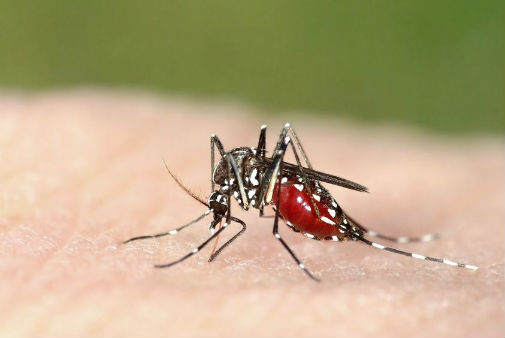Fruit fly protein could be new tool in tackling disease-carrying mosquitos
Posted on 10 October 2018

The protein is common to mosquitoes that carry diseases such as malaria, yellow fever, and dengue.
Published in Nature Communications, the research characterised a protein that is involved in regulating insulin in the fruit fly, which was previously thought to behave in the same way that insulin-like hormones work in humans.
Fruit flies are often used as models for researching many human diseases, particularly neurodegenerative diseases, because the system of releasing insulin and other hormones that stimulate metabolism, cell growth, and cell death are common to humans and animals, including insects.
Scientists at the University of York, however, investigated a protein that is different in the fruit fly compared to its equivalent in humans; they found that insulin-binding in the fruit fly is not the same as it is in humans as was previously thought.
Life-sustaining
Professor Marek Brzozowski, from the University of York’s Department of Biology, said: “It is important that we know exactly how this insulin-dependent life-sustaining system operates because fruit flies are commonly used as models for studying human diseases.
“What is particularly interesting in our new study, is that a protein that regulates hormones in the fruit fly, which is not present in humans, is, however, common to a lot of other insects, and most significantly, to mosquitoes that carry diseases such as malaria, yellow fever, and dengue.
“Now that we know this we can potentially look at inventions that prevents this protein from activating hormones that sustain the lifespan of some of these insects, as well as fine-tune the models we use to study human disease in the fruit fly.”
Genetic modification
There are a number of strands of study for combatting mosquito-borne diseases; one areas looks at drug development to immunise humans against the life-threatening disease and another that is investigating how to genetically modify the insect or disrupt its reproductive abilities to reduce its population size.
Drug develop for some of these diseases, particularly in developing nations, can prove too expensive, however, and so investigating new interventions in the mosquito is a strong area of scientific research. Further study is needed, however, to understand the significance of the mosquito to various ecosystems.
Professor Brzozowski said: “This new finding is exciting because it could open new pathways for drug design for mosquito-borne diseases, as well as take us a step closer to better understanding of some neurological diseases in humans, such as Alzheimer’s, that fruit flies are often studied for.”
Explore more news

Sodium channels in breast cancer cells a promising target for future treatments, study reveals
Thursday 25 July 2024

Cooling the classroom: University of York researchers to investigate UK schools’ responses to hot weather
Wednesday 24 July 2024

Hunter-gatherers kept an 'orderly home' in the earliest known British dwelling, study shows
Tuesday 23 July 2024

Study uses Game of Thrones to advance understanding of face blindness
Tuesday 23 July 2024

York academic contributes to new report on men’s health which reveals disparities between most and least deprived areas in the UK
Wednesday 17 July 2024
